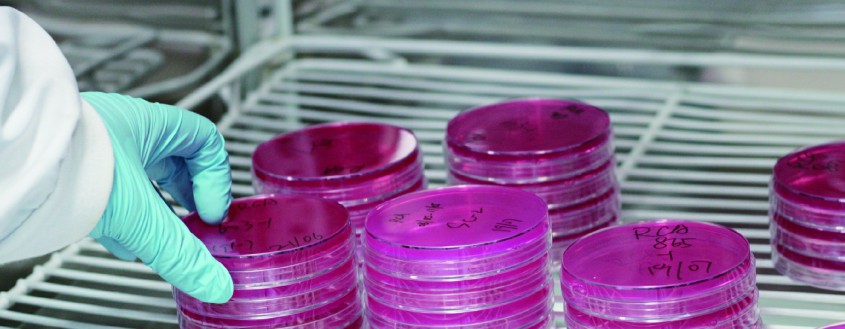Microbiological Challenge Testing

Microbial challenge study is used to simulate what happens to a product during processing, distribution and subsequent preparation and handing should it become contaminated, which is performed by inoculating selected microorganisms into a food to determine if the microorganisms are a potential health risk or spoilage risk.
According to the real situation of enterprises and product characteristics, Mérieux NutriSciences China Food Science Center simulates product storage condition rigorously and objectively. This experimental technique consists in inoculating a known concentration of a microorganism into a product and following its development through use of a specific protocol, such as the standard protocol published by the NACMCF.
Why do you need challenge study?
- To determine whether certain spoilage or pathogenic microorganisms can grow in a particular food.
- To study the effectiveness of the preservatives or determine whether there is a certain concentration of food preservative.
- To ensure manufacturers comply with food safety regulations. Regulations requests manufacturers should carry out such research in certain foods, especially the packaging food and ready-to-eat food which include potential Listeria, Salmonella and other pathogenic microorganisms.
When do you need challenge study?
- New storage conditions
- New formulation or composition
- To determine which preservative works best
- New treatments
Our Challenge tests present the following benefits
- Determine the pathogen or spoilage microorganism growth risk
- Classification of products according to the pathogen growth risk
- Evaluation of risks and determination of critical points and optimum microbiological safety intervals within the HACCP approach
- Determination of criteria for acceptable levels of pathogenic indicator organisms
- Limit costs and time of experimental studies with better targeted analyses


